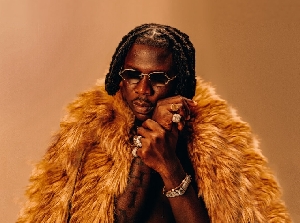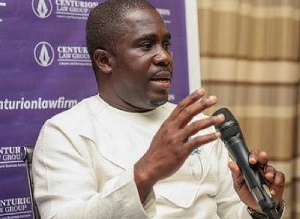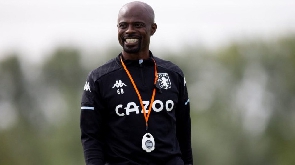By Kwame Okoampa-Ahoofe, Jr., Ph.D.
Garden City, New York
Oct. 7, 2015
E-mail: okoampaahoofe@optimum.net
I personally respect the man as a repository of a modicum of quite fascinating insight into postcolonial Ghanaian politics. However, in terms of the reliability of the content of what he actually has to say, especially about the checkered tenure of President Kwame Nkrumah, I have serious doubts. And this is primarily because as a staunch top aide to the deposed late Ghanaian dictator, Mr. K. B. Asante is too deeply invested in the narratology of the legacy of President Nkrumah and his extortionate regime of the so-called Convention People’s Party (CPP) to be reckoned as an objective critic or narrator of that rankly corrupt of postcolonial Ghanaian governments (See “Nkrumah’s Ministers Only Ate After 1PM News” Citifmonline.com / Ghanaweb.com 10/5/15).
I have been having a hard time appreciating this “vision thing” that is routinely associated with Kwame Nkrumah by his close associates and fanatics. And true to my prediction, the renowned nonagenarian does not waste time touting the patently disingenuous mantra of Nkrumah’s having been a “visionary personality” who worked tirelessly to get results. I mean, what sort of dynamic visionary would so scandalously lack the sort of fundamental working relationship with his own cabinet appointees that makes for ideal/great leadership, as to cause him to recklessly and indiscriminately fire these appointees through the hardly constructive issuance of daily news bulletins?
Indeed, I vividly remember hearing about the so-called One O’clock Fever as a teenager and a middle-school pupil, but I never took it seriously even back then. For some reason, I always thought this was just one of those legions of apocryphal myths suavely concocted to damage the image and reputation of the man, until Mr. Asante’s rather pat and cavalier revelation. To say the least, this evidently graceless attitude of Ghana’s first postcolonial leader is utterly embarrassing and strikingly fits into the morbid stereotype of the psychologically and intellectually benighted African leader of yesteryear. One cannot fathom a President Joseph (Kwame Kyeretwie) Boakye-Danquah treating his own cabinet appointees so shabbily like the proprietor of a late eighteenth-century American slave plantation. There is no evidence of either Prime Minister Kofi Abrefa Busia or President John Agyekum-Kufuor meting such inexcusably primitive treatment to any of his cabinet appointees.
I also don’t know whether Mr. Asante either recognized or pondered this fact before granting his interview or presentation with the host of Citi-Fm’s Time With Legends program, but it is no laudable mark of good leadership for President Nkrumah to have inspired such morally retrograde fear, as opposed to awe, in his own cabinet appointees, his closest administrative point-men, almost as if these ministers were some elementary school pupils. If such boorish attitude to governance does not constitute the very height of arrogance, I don’t know what else is. And if, indeed, such intemperate public, and human, relations temperament stood Mr. Nkrumah in good stead, as Mr. Asante is widely reported to have pontifically maintained, then it goes without saying that it is absolutely no wonder that politicians claiming to have inherited the mantle of Nkrumah’s leadership have been almost exclusively responsible for the Stygian socioeconomic, political and cultural mess in which our country currently finds itself. It cannot, of course, be gainsaid that the 15-year tenure of Kwame Nkrumah registered some quite remarkable achievements; but the fact equally holds that by the eve of his salubrious overthrow, the CPP’s Generalissimo had effectively run the country’s economy aground.
For those who may not know this, it was largely because of Mr. Komla Agbeli Gbedemah’s quarrel with President Nkrumah over the latter’s profligate dissipation of our national coffers that forced the former arch-lieutenant of the Show Boy to flee into protective exile. The fate of Mr. Ebenezer Ako-Adjei would almost definitely have befallen Nkrumah’s finance minister, had Mr. Motorway not opportunely read the proverbial handwriting on the wall. Not surprisingly, this aspect of Nkrumah’s volatile temperament and murderous tendencies have been conveniently muffed up by his worshipful fanatics. And I am quite certain that not many of these hopeless praise-singers favor Mr. Asante’s rather open and casual excavation of the seamy side of the late dictator’s personality.
Opinions of Sunday, 11 October 2015
Columnist: Okoampa-Ahoofe, Kwame
Was Nkrumah a Psycho or a Visionary?
Entertainment

















